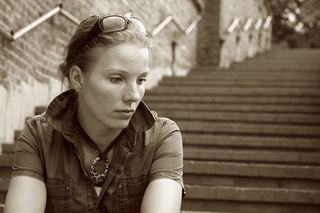Forgiveness
When Forgiving Yourself Is the Hardest Kind of Forgiveness
How do you forgive yourself when it feels impossible?
Posted October 2, 2017 Reviewed by Ekua Hagan

So you’ve done something wrong. You’ve hurt someone else or yourself, and now you feel angry, guilty, sad, or ashamed.
If someone else had wronged you, you’d want an apology, and then you’d decide whether or not to forgive them.
But when it’s you who’s done wrong, the steps are less clear. Maybe you don’t believe you deserve forgiveness, or you do but don’t know how to self-forgive. Either way, you feel awful.
How do you forgive yourself even when it feels impossible?
The first thing I’d like you to do is to acknowledge and appreciate the way you feel right now. Acknowledge that not everyone is self-aware or empathetic enough to admit they’ve done something wrong. Appreciate that you’re the kind of person who can recognize your faults and mistakes and say, “I did this; I am responsible.” You’ve done something wrong, yes, but at your core, you are a good person.
You may have read one of my earlier articles about forgiving others. Many of the principles of self-forgiveness are the same as forgiving someone else. When you forgive another or forgive yourself, you let go of your grievances and judgments and allow healing to start.
By “let go,” I don’t mean you pretend it never happened or say that what happened was OK. Forgiveness isn’t a pardon or an excuse, and it doesn’t mean you can’t continue to have feelings about what happened. Forgiving means accepting what happened and finding a way to move forward.
As a marriage and family therapist, I’ve worked with many patients on self-forgiveness. Some have done things that may seem unforgivable, but there’s one thing that those who’ve done the “unforgivable” and those who’ve done the easier-to-forgive have in common: They’re all human. Human beings make mistakes. Some mistakes are small, and some are enormous, but they’re all made for the same reason: We are imperfect creatures, and we’re all deserving of forgiveness.
We’re all doing the best we can with the tools we have. Sometimes those tools aren’t very helpful; our parents weren’t good role models, or our perceptions and judgments are flawed, or our beliefs and points of reference don’t serve our interests. I want you to sit quietly for a moment and say to yourself, “I did what I did because I am human and human beings aren’t perfect.”
The next step toward self-forgiveness is seeing the whole picture of the situation that needs releasing. This means you need to accept what happened, understand how and why it happened, and see all that came out of it—the obvious bad and the not-so-obvious good.
To forgive yourself, you need to mindfully expand your view of what happened. First, you must own what you have done and the consequences of your actions. And, you need to accept that there’s nothing you can do to change the past.
Second, think about what has happened in your life that led you to do what you did. What was the need you were trying to meet? What were the lessons your parents taught you, the experiences you’ve had, and the limiting beliefs and perceptions that led you to this moment?
This isn’t excusing or justifying what you did, but simply identifying the why and not just the what of what happened. When you know why you did what you did, you’re more able to find more constructive ways to meet the same need in the future.
Next, take a step back and see everything that has happened as a result of what you did. Not just what harm it caused others or yourself, but also what lessons you learned from it.
If you don’t believe you’ve learned anything, it means you haven’t examined the situation and your feelings closely enough. Take some time to think about how what happened has changed you. What can you learn about yourself or others from it? How has this lesson made you a better person? How can it improve your life?
State your self-forgiveness by simply saying, “I forgive myself.” You could also say, “I forgive myself for my errors, and allow myself to move forward today,” or “The past is done; I cannot change it. Still, I can be a steward of my life today.”
After you’ve communicated to yourself your self-forgiveness, you can communicate to the person you’ve harmed your understanding of the damage you’ve done to them and apologize. Then, you need to atone. Find a way to better the life of the person you hurt, or if you can’t help them, do something to improve someone else’s life. Show yourself and the world that you’ve learned from your mistake.
Finally, come up with a plan to do better. Take the lesson you have learned and apply it to your future actions. Ask yourself, “What can I do to ensure I don’t make the same mistake again?” This requires a dedicated commitment to staying mindful.
No benefit or good can come from keeping yourself stuck in the disempowering pattern of self-punishment. Punishing yourself doesn’t serve anyone. To serve others and make your own life better, you must forgive yourself.




